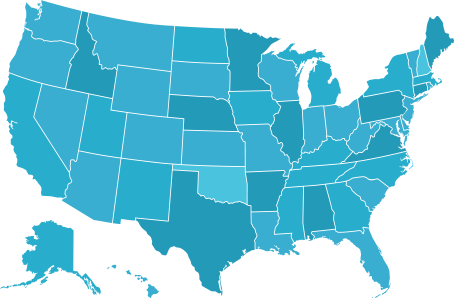
Tackle the title industry's incoming "Silver Tsunami" by using technology to codify knowledge, build standardization and simplify search.
The aging workforce presents a significant generational challenge across many industries. Notably, a record 4.1 million Americans will reach the age of 65 this year, a trend expected to continue annually through 2027, referred to as “Peak 65.” The American Land Title Association (ALTA) has highlighted that the title industry might experience this “Silver Tsunami” sooner than other sectors, given that the average age of employees within the title industry is already four years higher than that of the typical American worker.
While the impact will vary from company to company, the prospect of seasoned, long-term employees leaving will be more impactful for some in our industry, given the deep institutional knowledge of local requirements and nuances needed to be successful in the title space.
In addition, attracting new, engaged employees to replace industry veterans won’t be easy. The title industry, like many critical B2B businesses, is hardly top of mind for college students. Moreover, many companies in our industry have historically been family businesses passed on from generation to generation, but increasingly owners of these companies are reporting that their Millennial and Gen-X offspring are reluctant to join the family business.
How can the title industry ensure it has the right resources to move forward in a more technologically advanced world, attracting younger workers while not losing the invaluable knowledge of industry veterans?
Here are several ways DataTrace is working with title companies to help them address the problem now and future-proof their business with the next round of technological advances.
Codifying the Knowledge
One of the most important steps to future-proof the title business is to let technology learn from the older generation of workers who are set to retire in the next six to 10 years. Taking the time now (especially in the current low-volume market) to confirm and capture best practices and business requirements will ensure institutional knowledge for the nuances of title search and examination aren’t lost when key people leave. Codifying the knowledge and processes and building those into technology business rules and AI models not only improves productivity now but makes training new hires significantly easier. Whether it is rules and policies customized for a specific title company, or industry-wide best practices, being diligent about baking in proven rules will help mitigate the brain drain from retiring staff.
Building in Standardization
Much like capturing and codifying institutional knowledge within title production software, building in standardization with automated workflows and unified processes greatly enhances productivity and reduces reliance on human employees who come and go. Standardization is critically important because it creates a baseline and establishes consistency in the title manufacturing process, which is key, especially for new employees. It helps guide decision making with established underwriting rules, state-specific statutory or geographic requirements, and other unique rules of the road that reduce the time and guesswork in the search and examination process. It minimizes the prerequisite title knowledge required from employees which opens new channels for prospective new hires.
Simplifying the search
New technology has already made significant advances in simplifying title search, but there are many more efficiencies to come. Not only do older workers have valuable knowledge regarding national title search best practices, local-market requirements and unique search strategies that improve efficiencies and accuracy, they also know how to use legacy title search platforms. Some in the title business have spent years developing proficiency in navigating software solutions — a skillset that isn’t easily transferred or quickly learned.
Advanced tech-informed title search and examination functionality will see a continued progression toward even more simplified search solutions that further reduce the need for prerequisite knowledge or extended training sessions. The future enhancements will deliver intuitive systems that require very little information on the front end (think entering an address only) and tap into AI and machine learning to do the heavy lifting. Additional filters and parameters will still be part of the search process, but offered in a way that doesn’t require historical knowledge on the part of the user. Maps and more visual data representations will further improve productivity and accuracy, no matter the tenure of the employee.
POSITIONING FOR LONG-TERM SUCCESS
Consolidation into a single, holistic system removes the need for switching from one platform to another, as well as discreet prompts that provide helpful tips and location-specific information, are all on the current drawing board.
For now, though, simplification through automation is already changing how title companies operate. With DataTrace solutions, clients can provide an address, and our technology will pull the relevant data, normalize it, select required documents, process them through optical character recognition, and machine learning, auto -code and standardize all the elements according to the company’s established rules.
As the title industry encounters the dual challenges of evolving technology and an aging workforce, leveraging technology solutions to capture and preserve institutional knowledge is imperative for sustained future benefits.
 Geographic Coverage
Geographic Coverage





